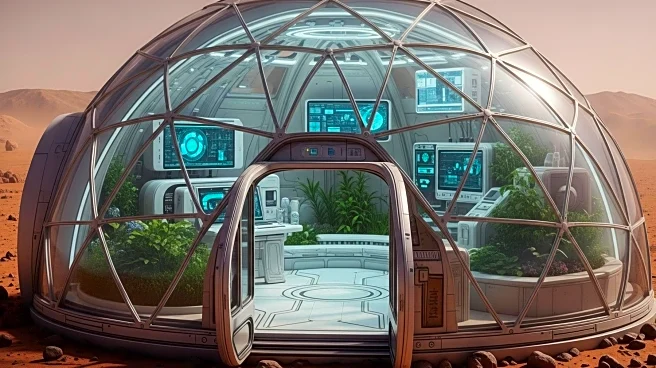What's Happening?
Biosphere 2, a research facility near Tucson, Arizona, is conducting experiments that could pave the way for agriculture on Mars. Scientists are observing how organisms take root in crushed volcanic rock, a process that could be crucial for sustaining human life on Mars. The facility, known for its diverse ecosystems, is now a test bed for understanding how life transforms landscapes. The research focuses on how soil, rocks, water, and microbes interact to drive landscape transformation, which is essential for terraforming Mars.
Why It's Important?
The research at Biosphere 2 is significant for future Mars colonization efforts. Understanding how to create habitable environments on Mars is crucial for long-term human survival on the planet. The experiments provide insights into preserving biodiversity, ensuring food security, and managing water resources on Earth, which are also applicable to extraterrestrial environments. This research supports the broader goal of making Mars a viable option for human habitation, aligning with plans by countries and private companies to explore and potentially colonize the planet.
What's Next?
Future research at Biosphere 2 will likely focus on further understanding the processes of primary succession and weathering in Mars-like conditions. Scientists aim to develop methods to detoxify Martian soils, making them suitable for plant growth. These efforts will be crucial for future Mars missions, as they address the challenges of growing food and sustaining human life on the planet. The findings could also influence strategies for environmental restoration and sustainability on Earth.
Beyond the Headlines
The research at Biosphere 2 highlights the interconnectedness of Earth and space sciences. By studying how life can adapt to harsh environments, scientists are not only preparing for future space exploration but also gaining insights into ecological resilience and sustainability on Earth. This work underscores the potential for scientific innovation to address global challenges and expand human capabilities beyond our planet.











